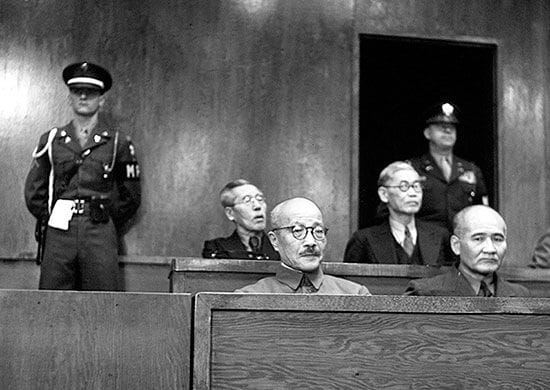Judgment at Tokyo: World War II on Trial and the Making of Modern Asia
By Gary J. Bass
Knopf, 917 pages, $46
Gary J. Bass, professor of politics and international affairs at Princeton University, thinks that the last seven decades of history prove that the Nuremberg trials were a success and the Tokyo trials a failure. “Compared to the pacified and united Western Europe that emerged in the years after Nuremberg,” he writes, “postwar Asia stands out for its dangerous disorder.” After World War II, Europeans internalized the lesson that aggressive war is an archaic and outlawed practice—except, of course, for Vladimir Putin, who “in any sensible world would be in The Hague,” according to Bass. Whereas we hanged Hideki Tojo and six other Japanese leaders for the crime of waging aggressive war, still Asians didn’t get the message.
The Tokyo trials also failed in their educational purpose, argues Bass: “There is no Japanese equivalent to the near universal national repentance and grief that are at the core of current German politics and society.” On the contrary, one hears from prominent Japanese politicians the kind of ambivalent statements about the country’s World War II record that, if a German politician said anything like it, “they would be publicly anathematized, ostracized, and possibly indicted.”
On the other hand, Japan will still exist three generations from now, thanks to this residual self-respect, whereas Germany will have abolished itself by means of immigration. So when evaluating Tokyo and Nuremberg, a lot depends on how exactly we define “success.”
“The war-crimes trials of Axis leaders were an experiment unprecedented in history.”
